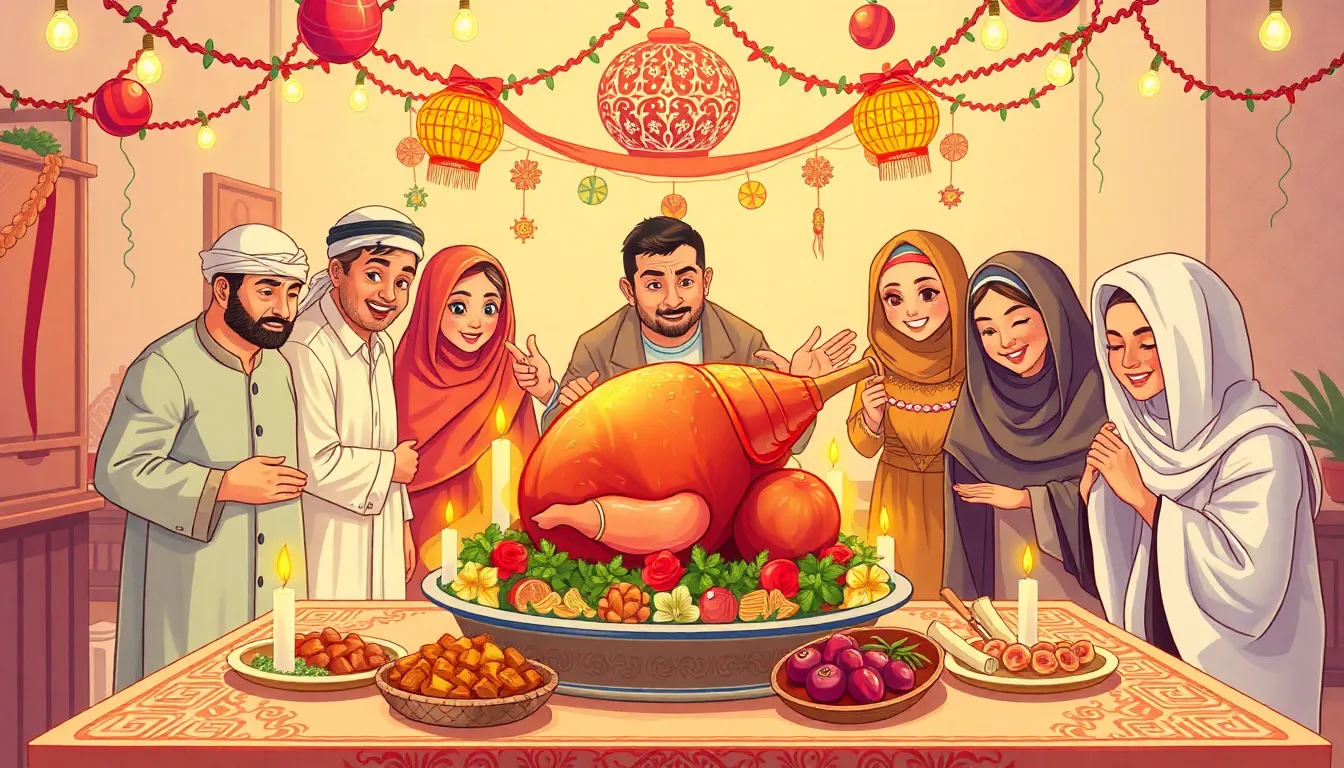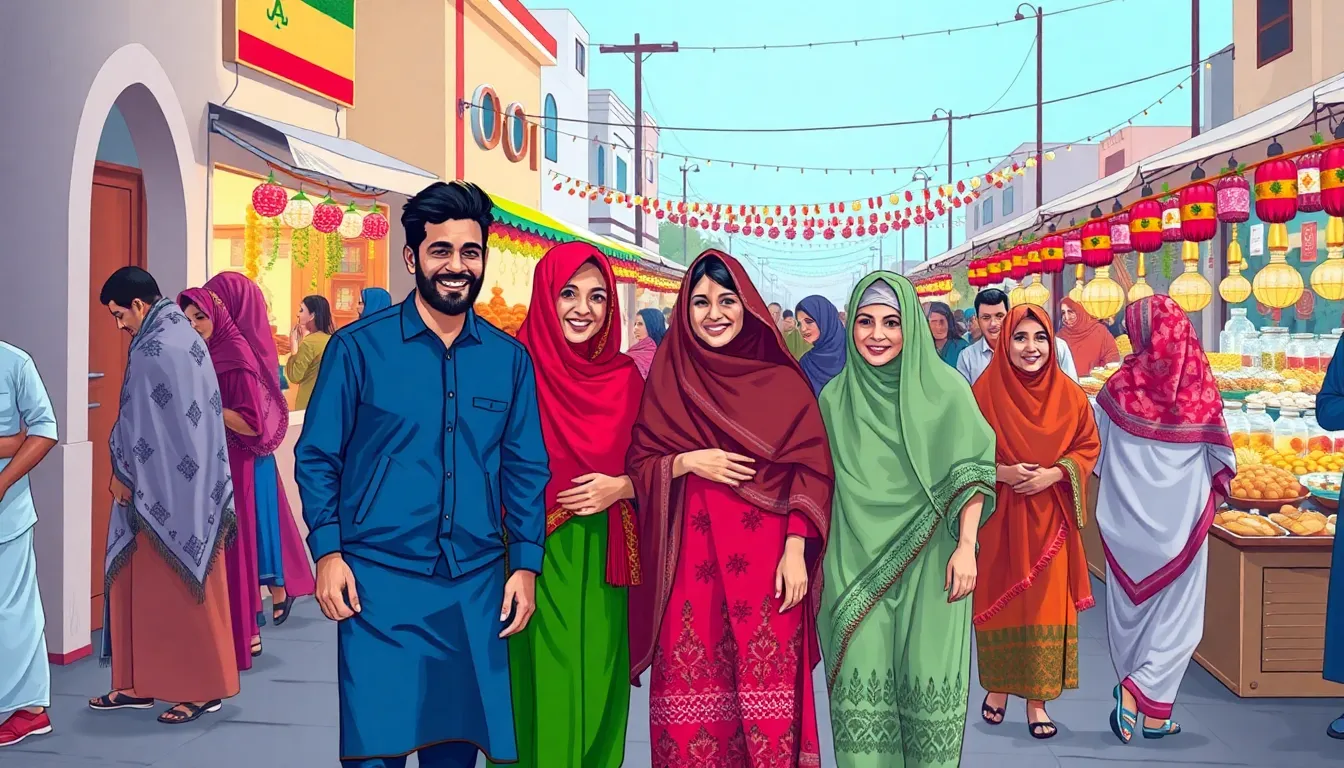Eid al-Adha is just around the corner, and for those in Lebanon, it’s not just a holiday; it’s a full-blown celebration packed with joy, feasting, and maybe a little too much baklava. In 2025, this significant occasion will fall on June 28, marking a time for families to gather, share meals, and reflect on the spirit of sacrifice.
Table of Contents
ToggleOverview of Eid al-Adha
Eid al-Adha, also known as the Festival of Sacrifice, holds deep religious significance for Muslims. This holiday commemorates the willingness of Prophet Ibrahim to sacrifice his son as an act of obedience to God. Observers reflect on the themes of sacrifice, gratitude, and community during this period.
Traditionally, Eid al-Adha involves gathering for prayers at mosques or communal settings. Families often come together to engage in worship, followed by festive meals. On June 28, 2025, Lebanese families will celebrate this day with joy and devotion, continuing long-standing customs that strengthen community ties.
Meat from sacrificed animals, such as sheep or goats, plays a central role during the celebrations. Portions of this meat are distributed among family, friends, and those in need, emphasizing the spirit of sharing and generosity. Holiday meals also feature an array of traditional dishes, showcasing Lebanon’s rich culinary heritage.
Festivities extend beyond culinary aspects, encompassing various cultural traditions unique to Lebanon. Local events often include music, dance, and community gatherings, enhancing the festive atmosphere. Children especially enjoy the holiday, receiving gifts and participating in organized activities.
Attending communal prayers marks the official start of Eid al-Adha. This occasion brings together individuals from diverse backgrounds, fostering unity and harmony. As they participate in the rituals, community members strengthen their bonds and deepen their faith.
Significance of Eid al-Adha

Eid al-Adha carries deep meaning for believers, emphasizing themes of sacrifice and community. This holiday honors the legacy of Prophet Ibrahim, whose willingness to sacrifice his son reflects faith and obedience to God.
Historical Background
Eid al-Adha originates from the Quranic story of Ibrahim, which illustrates the profound connection between God and his prophets. It commemorates Ibrahim’s dream, where he was instructed to sacrifice his son. In a divine test of faith, God provided a ram as a substitute, symbolizing mercy and compassion. This narrative forms the foundation of the holiday and emphasizes the importance of devotion and sacrifice in Islamic teachings.
Cultural Importance in Lebanon
In Lebanon, Eid al-Adha strengthens community bonds through shared celebrations. Families gather for prayers at mosques or public spaces, fostering unity and spirituality. The act of sharing meat from sacrificed animals highlights the spirit of generosity, emphasizing the importance of helping those in need. Unique Lebanese customs, such as traditional music and dance, enrich the holiday atmosphere. Children particularly enjoy receiving gifts and participating in festive activities, creating cherished memories. Overall, Eid al-Adha in Lebanon embodies joy, community, and faith.
Eid al-Adha 2025 Lebanon Date
Eid al-Adha in 2025 falls on June 28 in Lebanon. This date might vary slightly based on moon sighting, which is central to Islamic calendars.
Astronomical Calculations
Astronomical calculations guide the determination of Eid al-Adha’s exact date. These calculations rely on the lunar calendar, specifically the sighting of the moon’s crescent. Islamic authorities in Lebanon base their observance on these celestial events. Observers in different regions may report varying moon sightings, affecting when Eid is celebrated. As such, consultations with local religious leaders ensure communities align their prayers and festivities accordingly.
Regional Variations
Regional variations can lead to different Eid al-Adha dates within Lebanon. While June 28 is the anticipated date, some communities might celebrate a day earlier or later. Factors include local lunar sightings, tradition, and religious interpretations. Communities with closer ties may coordinate to ensure unity in celebration. As a result, observing these practices enhances community cohesion during Eid and fosters shared religious enthusiasm.
Celebrations and Traditions in Lebanon
Eid al-Adha in Lebanon brings vibrant celebrations filled with rich customs and shared experiences. The holiday revolves around various festive practices that unite families and communities.
Festive Practices
Lebanese families begin the day with communal prayers at mosques or public venues, marking the event’s significance. Afterward, festive meals featuring delicious dishes are shared, showcasing traditional foods such as lamb, rice, and various pastries. People often wear new or their best garments to honor the occasion, reflecting their devotion. Sacrificed animals provide meat for generous distribution, symbolizing charity and unity. Additional elements, such as traditional music and dance, enhance the festive atmosphere, adding joy for all participants. Children engage in activities, receiving gifts that create lasting memories.
Community Gatherings
Traditions in Lebanon encourage community gatherings during Eid al-Adha, emphasizing togetherness. Friends and families visit one another’s homes, reinforcing social ties and inviting joyous interactions. Neighborhoods often organize events, further bringing people together to celebrate. Local municipalities host festivities that feature entertainment, food stalls, and cultural performances, creating a welcoming environment. These gatherings strengthen community bonds through shared worship and collective enjoyment. Celebrations also extend beyond personal circles, as charity drives focus on helping those in need, reflecting the holiday’s spirit of generosity.
Eid al-Adha in 2025 is set to be a vibrant celebration in Lebanon on June 28. This holiday not only honors the profound legacy of sacrifice but also fosters a sense of community and togetherness. Families will gather for prayers and share festive meals, reinforcing their bonds and traditions. The spirit of generosity will shine through as people share the meat from sacrifices with loved ones and those in need.
As the day approaches, anticipation will grow, uniting Lebanese communities in their shared faith and cultural practices. The unique customs and joyful gatherings make Eid al-Adha a cherished occasion that resonates deeply within the hearts of many, ensuring its significance continues for generations to come.








